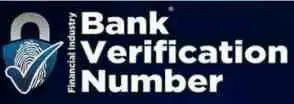
Around 1,500 out of the almost 3,000 Bureau De Change operators are now stuck with huge stock of unsold forex purchased from the official Central Bank of Nigeria (CBN) window following the apex bank directive which made Bank Verification Number (BVN) a prerequisite for purchase of foreign exchange.
Findings by LEADERSHIP reveal that the 1,500 BDCs are stuck with an average of $30,000, the whole sum that they get from the CBN weekly. This means that around $45 million is still unsold with the BDCs.
Acting President of the Association of Bureau De Change Operators of Nigeria (ABCON) Aminu Gwadabe in a phone interview yesterday stated data is being collated from the BDCs, noting that about 60 per cent of the BDCs are stuck with unsold forex.
Although the BDC operators have a lot of unsold foreign exchange, the value of the naira at the parallel market remained low selling around N230 to the dollar.
The operators are blaming the BVN requirement as mainly responsible for their woes, despite assurances by the apex bank, as most customers now shun the BDCs, preferring to patronise the street hawkers.
CBN spokesman, Mallam Ibrahim Mu’azu, had accused those pushing the argument of seeking to “arm-twist or blackmail the apex bank into reversing the directive on BVN requirement.
He debunked the claim that the use of the BVN as a requirement for the sale of foreign exchange is responsible for the low patronage.
Mu’azu added that BDCs were licensed to service the low end users whose demand falls below $5,000 as Basic Travel Allowance (BTA) or Personal Travel Allowance (PTA). Instead, he stated the BDC operators have over the years engaged in round-tripping, selling to those who carry the foreign currencies across the borders. This, the CBN says, is now being checked with the introduction of the BVN as a mandatory requirement for purchasing foreign currencies from the BDCs
Mu’azu also stated those with legitimate demand for forex need not fear as the BVN requirement is to facilitate the enforcement of authorized limits of sales and spread to end users and reduce the incidence of multiple purchases, round tripping and illicit transfer of funds.
Mu’azu had last week, also assured customers that divulging the BVN would not in any way compromise part of their banking information, provide access to their bank account information, being just a unique identification number.
“The BVN is neither a payment instrument nor an account number and therefore could not be used to access any account by unauthorized users, he assured.
“In practice, travelers who need to buy the forex submit more personal information like bank statements, international passport details and other personal information to the embassies, travel agents and airlines on demand without compromise while the BVN is just a number which ordinarily the BDCs cannot access their personal information.”
To further buttress its argument, the CBN stated that the implementation of the BVN requirement started November 1, while the forex demand in the BDC segment has dropped. The reason, it explained, was that those who engaged in bulk purchase could no longer exceed the limit, compelling the operators to comply with the earlier directive on the maximum amount they can sell to low forex end-users for travel allowances, medicals, school fees.
Leadership News